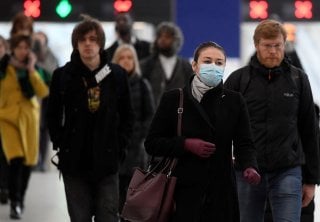Australian COVID Spike May Be Result of Testing but Also Behavior
The past week has brought large variations in the daily numbers of new cases. Today’s number is significantly high, and if we see similar increases over the next few days, it’s clear the current level 3 restrictions—and maybe even tighter restrictions—will need to be in place for some time.
Victoria has today achieved another grim record, with 723 new cases of COVID-19 and 13 deaths.
This is more than double the 295 cases recorded yesterday, and flies in the face of suggestions earlier this week that Victoria may have reached the peak of its second wave.
With this spike comes the announcement that from 11.59pm on Sunday, masks will be mandatory across all of Victoria — not just in metropolitan Melbourne and Mitchell Shire — as well as new restrictions on gatherings at home in Geelong, the Surf Coast and surrounds.
But what could explain this big jump in new cases?
More testing
First, it’s important to note almost 43,000 tests were conducted in Victoria on Sunday. This is roughly double the number of tests on most other days.
Given it can take a few days for test results to come through, today’s high figure could at least partly reflect the extra testing done at the weekend.
Worryingly, several infection clusters have come to light during the past week, both in aged care and in the community, such as workplaces.
A portion of the positive results could be related to extensive contact tracing which has occurred to track these clusters, and targeted testing resulting in further cases being identified.
Family, friends, home and work
Speaking this morning, Victorian Premier Daniel Andrews again indicated COVID-19 transmission is occurring in intimate settings, such as people’s homes.
Restrictions on visitors in the home were among the first measures to be reimposed in Melbourne last month. From 11.59pm tonight, no visitors will be allowed in homes in Geelong, the Surf Coast and surrounding areas where COVID-19 transmission has increased.
But hospitality businesses will keep operating, which Andrews says reflects data showing the spread is happening in home environments.
Importantly, Andrews reiterated today that people are not isolating when they’ve been asked to; instead leaving the house for work and other activities.
These include people waiting for their test results, and in one instance a person who had tested positive for COVID-19.
People continuing to move about in the community when they have symptoms or when they’ve been diagnosed with COVID-19 means new cases are likely to keep coming. We desperately need this message to cut through.
Masks are not a licence to leave home
We’ve now had a week of mandatory masks in Melbourne and Mitchell Shire. We hope these high numbers are not because masks are creating a false sense of security, in which people feel that because they’re wearing a mask they can go out and do what they want.
But we can’t ignore the fact this possibly has something to do with it. If you’re unwell and think you can move freely because you’re wearing a mask, you can’t. You must stay at home. And crucially, if you’ve been told you have COVID-19, you must remain at home — wearing a mask doesn’t change this.
Even if you’re well, it’s important to remember masks are an additional measure. They’re not a substitute for physical distancing or hand hygiene, which remain vitally important.
Similarly, there’s a chance many people in the community aren’t wearing masks properly and continue to handle them inappropriately, risking cross-contamination.
Every day is important
The past week has brought large variations in the daily numbers of new cases. Today’s number is significantly high, and if we see similar increases over the next few days, it’s clear the current level 3 restrictions — and maybe even tighter restrictions — will need to be in place for some time.
In the meantime, it’s vital people stay at home if they’re unwell. For everyone else in Melbourne and Mitchell Shire, if you must leave home for one of the four reasons, please observe physical distancing, practise hand hygiene, and wear a mask.
Philip Russo is an Associate Professor and the Director of the Cabrini Monash University Department of Nursing Research at Monash University.
Brett Mitchell is a Professor of Nursing at the University of Newcastle.
This article is republished from The Conversation under a Creative Commons license. Read the original article.
Image: Reuters

